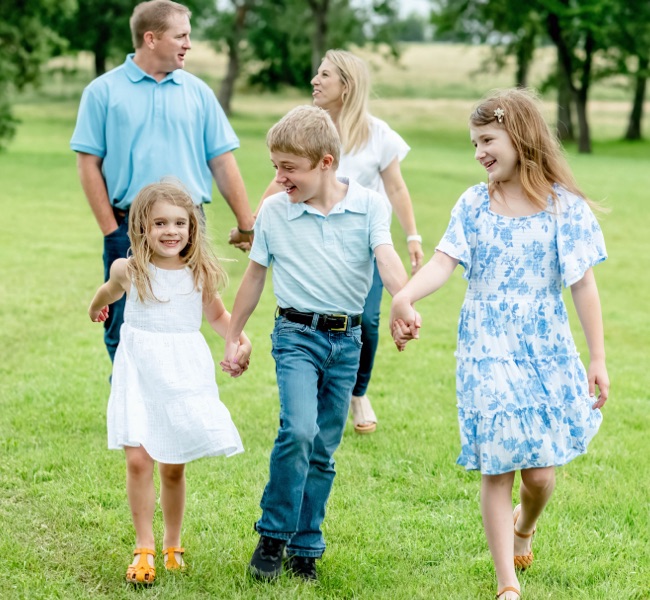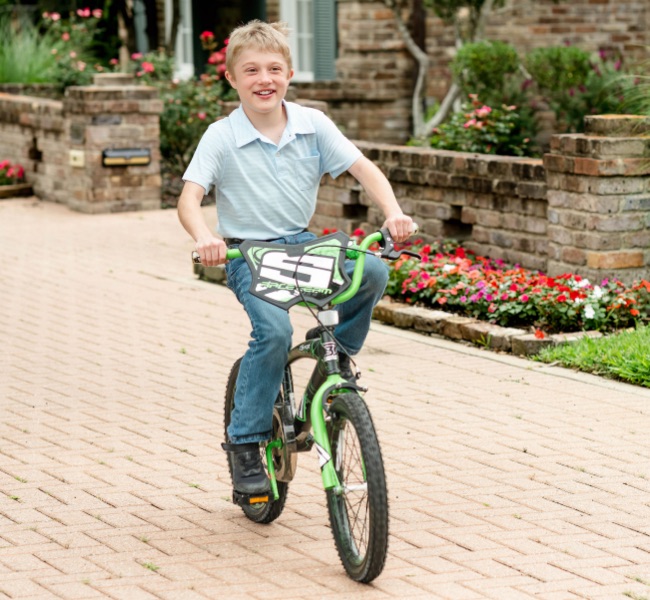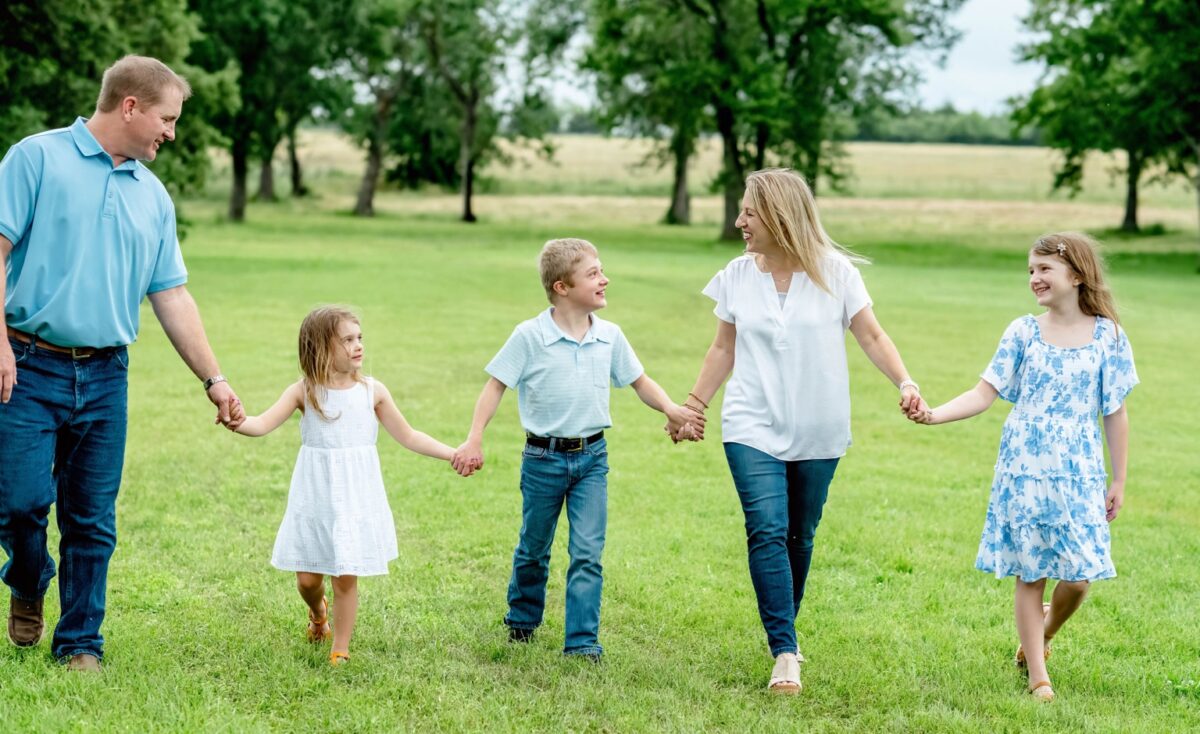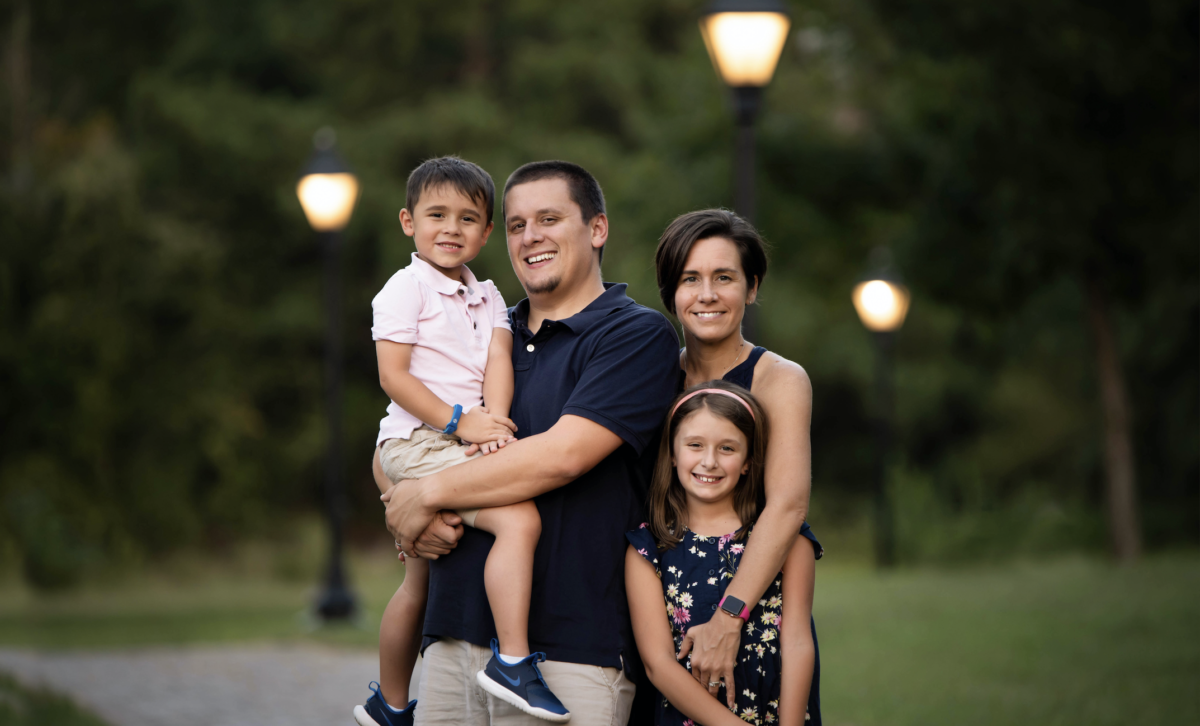Eric Mosbrooker has over 20 years of experience in global commercial operations, with demonstrated leadership and experience in global pricing, marketing, distribution, product launches, and compliance. In addition to his commercial experience, Mr. Mosbrooker has expertise in gene therapy, rare metabolic diseases, additional orphan conditions and oncology. Most recently, Mr. Mosbrooker served as the Chief Operations Officer for Cognoa, leading the commercial, program management, product, and business operations functions. Before Cognoa, he was the Chief Commercial Officer at Audentes Therapeutics overseeing the gene therapy business unit and the Senior Vice President of the Global Orphan Business Unit at Horizon Pharmaceuticals. He holds a B.S. in Industrial Engineering from the University of Wisconsin – Madison.
Teresa McCarthy
Teresa McCarthy, Chief Human Resources Officer, joined Avidity Biosciences in August 2020. Ms. McCarthy is responsible for developing and executing human resource strategies in support of Avidity’s overall business plan and strategic direction. She brings to Avidity decades of experience as an organizational development and human resources consultant in the life science industry. Ms. McCarthy has worked with biotech and healthcare companies at all stages of development via her consulting firm, McCarthy Consultants Inc., and her long-term partnership with The Leadership Edge, Inc. Prior to consulting, Ms. McCarthy held leadership positions at Edwards Lifesciences, Baxter Cardiovascular Group, and IVAC Corporation and received an M.A. degree in Organizational Communication with an emphasis in International Business from San Diego State University.
Michael MacLean
Michael MacLean is Chief Financial and Business Officer at Avidity Biosciences Inc. Mr. MacLean brings decades of relevant financial industry experience to Avidity, with deep experience in funding biotechnology companies to advance novel therapies in the rare and orphan disease space. Most recently, Mr. MacLean served as Chief Financial Officer of Akcea Therapeutics, Inc. where he led the buildout of Akcea’s financial and commercial infrastructure. Prior to Akcea, Mr. MacLean served as Chief Financial Officer of PureTech Health, plc, as well as Chief Accounting Officer of Biogen Inc. where he led the company’s worldwide finance operations.
W. Michael Flanagan, PhD
W. Michael Flanagan, Chief Scientific and Technical Officer, joined Avidity Biosciences in January 2021. Dr. Flanagan has extensive experience developing multiple therapeutic modalities, including RNA therapeutics, antibody drug conjugates, and bispecific antibodies. Prior to joining Avidity, Dr. Flanagan served as Senior Director and Project Team Leader, Oncology and Immunology for Genentech, Inc., where he advanced programs through late-stage research to end of Phase 2 development. Prior to Genentech, he served in roles of increasing responsibility in the biology groups at Sunesis Pharmaceuticals, Inc., Gilead Sciences, Inc., and Merck & Co., Inc. where he was Senior Director of RNA Sciences. Dr. Flanagan received a B.S. in Genetics from the University of California at Davis, a Ph.D. in Biological Sciences from the University of California at Irvine and was an American Cancer Society postdoctoral fellow at the Howard Hughes Medical Institute, Stanford University.
Steve Hughes, MD
Dr. Steve Hughes, Chief Medical Officer, joined Avidity Biosciences in February 2022. Dr. Hughes has over 20 years of experience building and leading clinical development and medical affairs teams. He has contributed to over 50 clinical trials for more than 25 drugs across all stages of drug development and in multiple therapeutic areas including cardiovascular, neurology and several rare diseases with successful license approvals for several rare disease drugs. Dr. Hughes’s previous positions include the Chief Medical Officer at Arcturus and Organovo, Chief Clinical Development Officer at Ionis Pharmaceuticals and clinical leadership positions at Biogen, CSL Behring and Sanofi. Dr. Hughes is board certified in pharmaceutical medicine and received his medical degree from Imperial College, London. He also has an MBA from Imperial College Business School.
Loraine’s Story
When former intensive care nurse Loraine, her daughter Kristl, and her unborn grandson, Zen, were all diagnosed with myotonic dystrophy type 1 (DM1), Loraine was determined not to let any valuable time pass before taking action to help her family. Pushing her own emotions aside, Loraine leant on her nursing experience to develop a comprehensive care plan and advocate for her family.
I knew that DM1 could be a very aggressive condition, so after my daughter, grandson, and I were diagnosed, I let my instinct as nurse take over and created a care plan to follow. I skipped over the grieving process because I knew I had to act immediately.
Managing Kristl’s symptoms over the years has been a challenge for Loraine while also trying to deal with her own symptoms. For Kristl it can be difficult to complete daily tasks such as dressing herself or washing her hair, and she also experiences challenges from cognitive issues that can affect her executive functioning and memory. As a result, after giving birth to Zen, Loraine became his guardian and primary caregiver. Although Loraine has dedicated herself to Zen’s care, she also carries the burden of suffering from several manifestations of DM1 herself, such as gastrointestinal issues, muscle weakness, respiratory concerns, and daytime sleepiness.

As Loraine and her loved ones continue to navigate their experiences with DM1, she expresses the importance in finding a physician who will take the time to listen and learn about each individual’s own challenges with the disease. Support groups have also proven extremely valuable and Loraine has taken a leadership role in the Orange County, California Myotonic Dystrophy Foundation Support Group.
I would advise doctors to help connect their patients with a DM1 support group immediately. Physicians aren’t trained to support patients emotionally and don’t truly understand the impact the disease has on their patient’s physical and mental well-being, which is why support groups are a really helpful resource.
Lee’s Story
Lee is the oldest of three children and has grown up in Texas with a pretty active childhood and loving parents. But, at a routine 7-year-old check up with Lee’s pediatrician, their doctor noticed that Lee’s ankles would not rotate like his younger sister’s. In a sudden whirlwind, Lee’s pediatrician referred him to a neurologist who would soon suggest he had muscular dystrophy. Before Lee’s parents could begin to process their emotions, their doctor delivered a heart- wrenching and bleak outlook. A few weeks later, a blood test officially confirmed Lee had Duchenne muscular dystrophy (DMD). With hardly any explanation and limited knowledge about Duchenne, Lee’s parents immediately felt overwhelmed and discouraged as they tried to make sense of their new reality.
There was no advice for clinical trials, no explanation of the difference between Duchenne and Becker, and no discussion that the trajectory for each patient is different. We got nothing.
Lee’s mother, Ginne, was quick to jump into researching Duchenne. Ginne has always been a go-getter, and facing Lee’s diagnosis was no different. She spent countless hours searching for possible treatment options for Duchenne. Her research led her to advocacy websites, Facebook groups, pharmaceutical and biotech websites, and upcoming clinical trials. Sorting through information was by no means an easy task, but the more Ginne learned about Duchenne, the more she felt empowered to advocate for Lee’s management and treatment plan, although, the journey was not without roadblocks. With limited treatment options for her son, Ginne found a clinical trial opportunity she felt offered hope for Lee’s condition. However, as their family began to regain hope, they were again disheartened to learn that part of Lee’s condition excluded him from the clinical trial.
Thankfully, Ginne has found a community of hope and support in Duchenne advocacy and online groups. Not only has she connected with other Duchenne parents, but the community has also bonded over sharing updates on exciting new research and upcoming patient treatment options. For Ginne, the support groups are a place of therapy, friendship, and hope.

Duchenne is a marathon, so having support groups to lean on and hope for future treatments is essential.
At only 11 years old, Lee has so much to manage on a day-to-day basis. Each morning before school, he takes cocktails of different medications to manage the physical and emotional symptoms of Duchenne. In the afternoon, he has a physical therapy session to stretch his muscles twice a week. In the evening, he puts on ankle-foot orthotics (AFOs) to sleep in and receives an additional medication injection. On top of his daily care, he also visits an out-of-state neurologist every six months, in addition to several other specialists, including a pulmonologist, cardiologist, and endocrinologist.
Lee has had more blood draws than any eleven-year-old I know. He also completes a cardiac MRI every year, which is no easy task for anyone.
On top of the many physical challenges of living with Duchenne, Lee faces the typical challenges of being an 11-year-old boy. As Lee gets older, he struggles to keep up in height with his peers. Although steroids are important in managing Lee’s condition, they also limit his height. Mentally, this is very difficult for Lee as his friends and classmates start to hit their growth spurts. At the same time, he struggles to run as fast as other kids his age and keep up with his friends during recess.

Yet, despite Lee’s frustrations, he remains incredibly brave and still finds time for his favorite activities. Lee loves to play outside, just like most other kids. He enjoys participating on the school’s golf team. Another favorite pastime for Lee is recreational swimming. At night, he calls his friends to compete in video games like Roblox. Ginne tries to do as much as she can to keep Lee’s life as comfortable and normal as possible – he even learned to ride a bike which is an important victory for a child battling Duchenne.
He continues to amaze me every day with his strength to push through challenges no child should have to deal with.
Today, Ginne encourages other caregivers to avoid getting caught up in historical disease projections. While a diagnosis is undeniably frightening, no boy will have the same experience as another, and there is a broad spectrum of experiences. In addition, there is so much to be hopeful for as clinical trials open and potential treatment options expand.
I hope Lee gets into a clinical trial. I hope he produces dystrophin. I hope he can lower his steroid dosage. I hope he runs across the stage at graduation. I hope his generation of boys will have a brighter outlook in the face of Duchenne.

Arthur A. Levin, PhD
Arthur Levin, a founding member of Avidity, serves as Distinguished Scientist and Strategic Leader at Avidity Biosciences and is a member of the Board of Directors. He previously held the position of Chief Scientific Officer at Avidity. Dr. Levin is a key opinion leader in the RNA therapeutics field who has led teams responsible for the development of many oligonucleotides. Prior to joining Avidity, Dr. Levin was the Executive Vice President of Research and Development at miRagen Therapeutics and held senior drug development roles at Ionis (formerly Isis) Pharmaceuticals and Santaris Pharma.
Dr. Levin has played key roles in the development of numerous oligonucleotides including the first approved antisense drugs and the first microRNA-targeted therapeutic in clinical trials. He has a combined three decades of experience in all aspects of drug development from discovery through drug registration, both in large pharma and biotech companies. Dr. Levin has published more than 100 scientific articles and several of the most cited reviews in the field. He is on the scientific advisory boards of multiple institutions. Art received a doctorate in toxicology from the University of Rochester, and a bachelor’s degree in biology from Muhlenberg College.
Sarah Boyce
Sarah Boyce joined Avidity as President and Chief Executive Officer and a member of the Board of Directors in October 2019. She has more than 25 years of global leadership experience in both pharmaceutical and biopharmaceutical companies. Sarah’s tenure at Avidity has been marked by transformative leadership, starting with the company’s successful Series C funding round and IPO. She continues to drive the company’s evolution from a research and development entity to a biopharmaceutical company through the advancement of three therapies into clinical development and the expansion of the broad utility of the company’s proprietary RNA technology. Prior to joining Avidity, Sarah held the position of president and a member of the board of directors of Akcea Therapeutics. She previously held executive roles in business development and global operations for leading life sciences companies including Ionis Pharmaceuticals, Forest Laboratories, Alexion Pharmaceuticals, Novartis Oncology and Roche. Sarah was named a Healthcare Technology Report Top 25 Biotech CEO in 2022 and has been named one of Fiercest Women in Life Sciences. Sarah currently serves as a member of the board of directors at OmniAb, Inc. Sarah holds a BSc (Hons) degree in microbiology from the University of Manchester, England.
Nathan’s Story
Throughout Nathan’s early childhood months, Brad and Misty noticed that their son was delayed in hitting many milestones that every parent looks forward to – sitting up, rolling, walking, and beginning to talk. After a visit with a physical therapist who noted the large size of Nathan’s calves, they were directed to a pediatric neurologist who diagnosed Nathan with Duchenne Muscular Dystrophy (DMD) – a progressive, rare genetic neuromuscular disorder which affects the skeletal, heart and breathing muscles in young boys.
Receiving Nathan’s diagnosis and learning about DMD was really tough. When you become a parent, you have many hopes and dreams for your child and what their life will be like, and this diagnosis robbed us of so much of that.
Nathan, now 6, has a team of doctors in place to help manage the disease and his symptoms. Every 6 months he goes to a clinic to see a physical therapist, occupational therapist, pulmonologist, cardiologist, social worker, and dietician. The main thing that Nathan’s lead doctor advises, is to let Nathan be a kid as much as possible.
We do as much as we can to let Nathan be a kid, but it can be overwhelming planning for all the considerations needed that allow him to partake in life like other boys his age. We have to limit his activity and encourage him to take breaks as his legs become sore and tired out quickly. We carry Nathan up and down sets of stairs and he is pulled around in a wagon to help him get around his elementary school.

As Nathan’s parents and caregivers, Brad and Misty play a vital role in not only taking care of Nathan, but being his advocate. There are many different paths to take when it comes to considering treatment options or clinical trials and it can be overwhelming to know what the right answer is and how it will impact Nathan down the road. It can also be isolating at times to not have a support system in place.
There are lots of great resources out there for families whose loved ones are living with DMD, but I wish we had more opportunities to connect with people in the DMD community locally. It’s not always easy for others to understand what we’re going through, and you can feel completely alone at times.
Brad stays hopeful through the work he does with different DMD advocacy groups and organizations, talking to and educating others about DMD and making as many memories as he can with his family. Brad is motivated by his son and hopes that by making just one more person knowledgeable about DMD it can help to spread awareness of the disease.
My advice to any other family dealing with this is to take it day by day, do as much research as possible, and connect with others. I hope that someday there will be a cure for DMD, and no other family will have to go through this.
